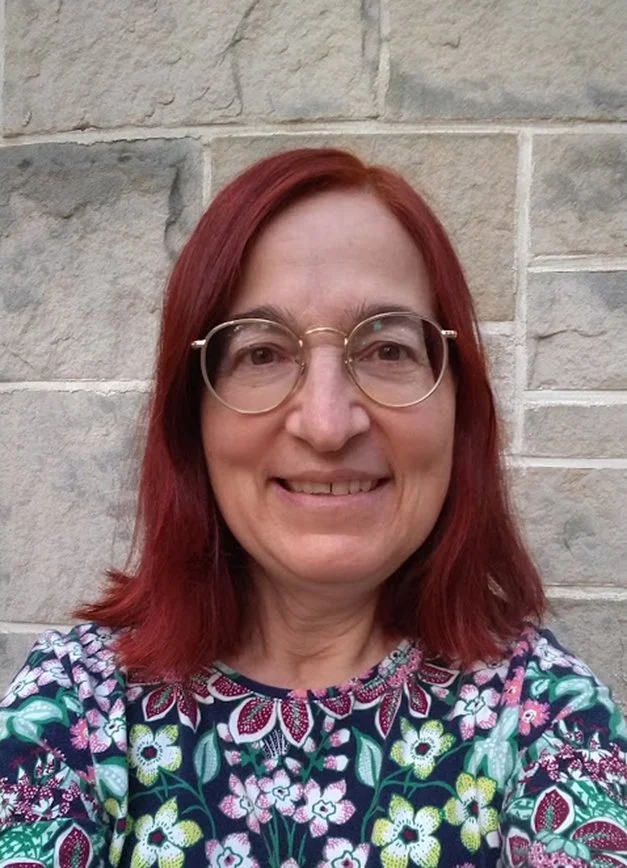
Jigsaw Modules
Science Fiction Institute
Summer 2023
The program at a glance:
Sci Fi Faculty Fellows take part in an exciting initiative to interweave humanities and STEM. Working in interdisciplinary teams, fellows develop a science fiction jigsaw module that links their specializations.
For scientists who love fiction, humanists fascinated by science, and all instructors who would like to infuse any course with science fiction.
Fellows will individually integrate these jigsaw modules into their Fall 2023 courses. The newly-designed modules will populate the Library of Babel Fish database, and become available to all FIU and MDC faculty.

Featuring workshops with celebrated guest speakers:
-

Andrea Hairston
LOUISE WOLFF KAHN PROFESSOR OF THEATRE AND PROFESSOR OF AFRICANA STUDIES, SMITH COLLEGE; NOVELIST; PLAYWRIGHT
-

Carlos Hernandez, Ph.D.
PROFESSOR OF ENGLISH, BOROUGH OF MANHATTAN COMMUNITY COLLEGE, CUNY; WRITER
-

Joan Slonczewski, Ph.D.
PROFESSOR OF BIOLOGY, KENYON COLLEGE; NOVELIST
-

Sheree Renée Thomas
WRITER; EDITOR; CURATOR
The program in detail:
-
Innovate an interdisciplinary undergraduate curriculum by integrating science fiction into courses across the university.
-
With “plug-and-play,” portable course content (PCC). PCC is a ready-to-go cluster of lessons that can be interpolated into pre-existing courses in any discipline. One type of PCC is the jigsaw module. Jigsaw modules are thus named because they are ready-to-go lesson chunks that faculty in any field can interpolate into a pre-existing course — like a puzzle piece. Jigsaw modules function as templates that an instructor can adjust and rearrange per a course’s requirements and modality, and scale to cover one to three weeks.
Bundled in adaptable, self-contained units, science fiction jigsaw modules can transform the undergraduate classroom experience.
-
The PCC model gets interdisciplinarity into places where it would otherwise not exist. Without changing majors, declaring a new minor, or incurring excess credits hours, STEM students in sci fi jigsaw module-adopting courses will have the opportunity to not only interface with the humanities, but assimilate humanistic approaches into their chosen disciplines.
Whether they encounter the module in a humanities course or a STEM course, STEM majors will gain exposure to the humanities that is not perfunctory, but rather fully entwined with their subject of study. Learning for humanities majors improves as well: they see their subject in a new light and observe how it intersects with other fields – what it can offer to the understanding of other subjects. This will enable them to discover novel applications for their humanistic expertise, which can translate into innovative job opportunities.
-
Over the course of our institute, fellows design original science fiction jigsaw modules. Fellows participate in four expert-led workshops with guidance about format and ideas for content.
To receive individualized support for their module's Canvas shell development, each team schedules a consultation about instructional technology and design with FIU Online’s Associate Director of Instructional Learning Technology Maikel Right. In Fall 2023, each fellow will implement their new jigsaw module by aligning it to one of their courses.
-
You, if you're an FIU or MDC faculty member interested in cross-disciplinary, cutting-edge, creative pedagogy and are willing to integrate your newly designed module into one of your Fall 2023 courses.
-
Via Zoom during Summer 2023.
Why science fiction?
Sci fi is uniquely positioned to build bridges among disciplines. It invites us to dwell in realities that feature radically different societies, communication systems, natural laws, and technology. Sci fi has the capacity to not only instill empathy and compassion, but also enhance students’ understanding of subject matter in multiple fields.
The Lab's sci fi modules are specially crafted to address content-specific learning outcomes. Approaching material in this engaging manner has the potential to improve student learning outcomes in content areas your course is already designed to cover. For example, a biology professor could incorporate a module featuring tales of genetically altered beings; an English professor might integrate a module that explores climate fiction.
This program is made possible in part by a major grant from the National Endowment for the Humanities.
Any views, findings, conclusions, or recommendations expressed with relation to this program do not necessarily represent those of the National Endowment for the Humanities.
Additional support is provided by FIU’s Center for the Advancement of Teaching, Honors College, Connect4Success, and The Humanities Edge, as well as by MDC’s District Office of Academic Affairs.



